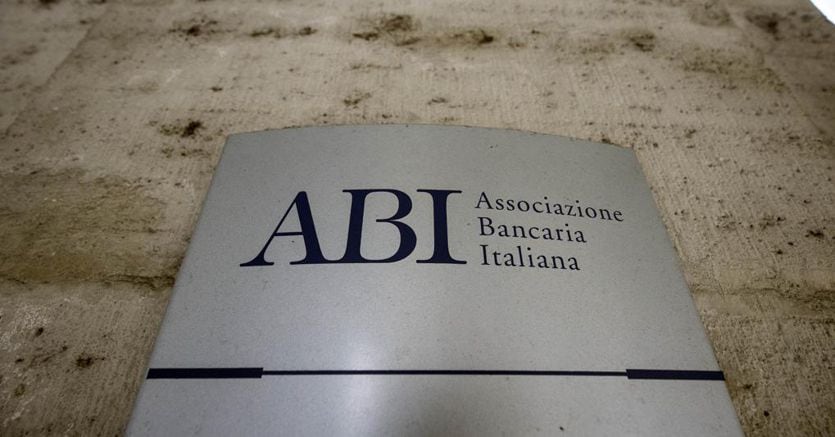Listen to the audio version of the article
It is a continuous dialogue, a somewhat hidden mediation, with which the framework of the new banking contract is being built. While waiting for the new formal meeting on Thursday between Abi and the unions, the president of the Trade Union and Labor Affairs Committee, Ilaria Maria Dalla Riva, is discussing with the general secretaries of the credit organizations (Fabi, First, Fisac, Uilca and Unisin) on The balance necessary to enter the final part of the negotiation. In this dialogue, however, it is the unblocking of the bankers on the full mandate, unanimously, to continue the negotiations to quickly conclude the renewal of the national collective labor agreement for the 270 thousand bankers, to Dalla Riva and to the general manager Giovanni Sabatini who have the final phase of negotiations opened.
The mandate of the Abi Presidential Committee
The Abi Presidential Committee, made up of the president of the Association, Antonio Patuelli, the deputy vice-president, Gian Maria Gros-Pietro and the vice-presidents, Nicola Maione, Mario Alberto Pedranzini, Guido Rosa and Massimo Tononi, as well as the general director, Giovanni Sabatini, and from a large list of presidents and managing directors of the main groups, meeting on 6 November, late in the evening «with all the members present, having heard the report of the President of the Casl Ilaria Dalla Riva, unanimously resolved to give mandate to the president of Casl Dalla Riva and the general director of ABI Giovanni Sabatini, to continue the negotiations to quickly conclude the renewal of the national employment contract for the banking sector”, explains a note from the association. And thus he also gave a substantial green light to negotiate on everything, including the economic part on which the unions asked for an increase of 435 euros to the average reference level, and the restoration of the full basis of severance pay which had been reduced with the 2012 contract.
The push from Intesa Sanpaolo
The economic part, also given the size of the request made by Fabi, First, Fisac, Uilca and Unisin, has represented the main obstacle to overcome in recent months. To help the leap was the managing director and CEO of Intesa Sanpaolo, Carlo Messina, who on the one hand decided to revoke the representation mandate from Abi to move more freely, given the size and challenges of his group, and on the ‘else has never failed to make its voice heard. At least two occasions which then favored an acceleration in the negotiations: the first was in June, at the Fabi congress, with the clear opening at 435 euros on which Messina explained that, given the profits of his bank, there would be no discussed. The second was in recent days, when he explained that by the end of the year Ca ‘de Sass would have given a raise and would have restored the full basis for the calculation of severance pay, regardless of the negotiations on the contract in Abi. Hoping, however, for a positive solution to the negotiation.
Race against time for a tranche of increase at the end of the year
While waiting for Thursday, when the dialogue between Abi and the unions will officially restart from a more concrete perspective compared to the last meetings, there will be a series of informal discussions between the general secretaries and Abi, in order to prepare the ground and try to close the game in useful time to be able to credit a first tranche of increase already with the December salary. To achieve this objective, for technical reasons, the contract must be closed between the end of November and the beginning of December. Beyond these times, the first tranche of increase would slip into the new year. Also because, once the hypothesis of an agreement has been found, the workers will have to vote on the agreement in the meetings.
The exchange on the regulatory part and duration
Given the institutions’ openness on the economic side, it is clear that the union will have to be very willing to negotiate on the duration of the contract and on the regulatory part. In particular on those flexibility factors which, also due to mergers and branch cuts, as well as the development of the digital bank, are increasingly necessary in companies. The reference is to the reform of the classifications to align them with the new organisations, given that their structure dates back to many decades ago and no longer exactly reflects work in a bank. But also to the true fungibility of the tasks, on which a first timid modification was brought by the 2019 contract, with reference to managers and the last level of the professional areas. A choice that at the time was also made to defend the role of workers and the issue of their transferability, in a phase of continuous reorganization of banks and branch closures, also due to the effect of mergers and the expansion of the digital bank. This time, however, the stakes are double: the banks are asking the unions for both true fungibility and mobility, that is, the possibility of transferring people from one location to another without many limits, or in any case with many fewer limits: according the bankers’ contract in fact provides for a precise mileage, also based on seniority, always strongly claimed, even in terms of improvement, in all company agreements, complete with the calculation of any commuting allowance.
